How To Homeschool

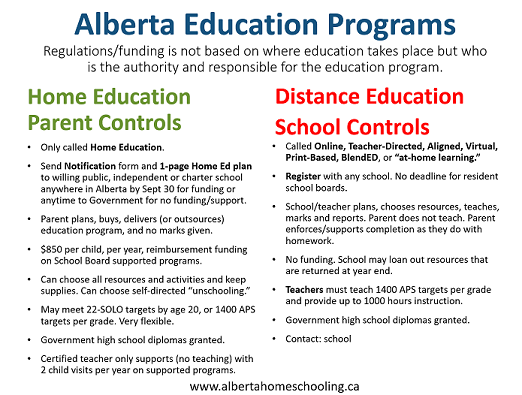
Homeschooling 101 Alberta
Preschool and Kindergarten (Ages 0-5) Little Ones

Children of the baby, toddler and preschool age love to play and learn best through play, experimentation and discovery. Best practices dictate that learning comes through free-play-based activities that are child-led. Follow your child's lead and play with them! Read to them, talk to them and sing to them to develop their language skills. In order to enhance language development, screens should be limited to zero use under age 2, and 1 hour per day of mutual watching for ages 3-5 years. Toddlers and preschoolers need 3 hours of active play per day.
Kindergarten Home Education Plan
Kindergarten Summary APS Outcomes
Grades 1-3 (Ages 6-8) Young Children

These are the grades that the main focus is learning-to-read. Cuddle up on the sofa and read to your children from an assortment of picture books, comics, graphic novels, and storybooks. If your child is reading, let them read to you. Ask them to write grocery lists, memos, letters to relatives and other informal items of writing.
Literacy and numeracy is most important in these grades. Science, history and social studies is nice to have, but not needs to have. In school children have to spend 6 hours a day for caregiver employment support, so their day is filled with science and social studies topics to fill their time with activity, but at home, children can learn through their interests. They are much more engaged in learning if they are interested in the topics.
Math at these levels is very elementary and most caregivers can teach addition, subtraction, and some multiplication. Children learn math best through experiential learning activities such as baking, board games, puzzles, and internet games.
Science is best learned through gardening, outdoor activities such as walks, and pet care. The Science Centre and Zoo are great places of immersion into science.
Social studies is best learned through field trips to museums, plays, travel, and through film watching and discussions.
If your grade 1 to grade 6 child is at home and spends most of the day playing, don't worry! They are still learning but with new resources. Most children under age 13 will not remember what they studied in their grades 1 to 6 years. The real learning that sticks begins in puberty. Young children who attend elementary school still have their neurons connect with each other (by sending neurotransmitters over the gap between them) when they learn about different topics. However, the same can be accomplished by playing video games too. Anything that stimulates a child’s interest is educational and promotes neuron connection. Anything. That is why there is no difference between "educational" resources and "entertainment" resources. Children learn about whatever they are interested in and one can’t stop a child from learning and one can’t force a child to learn. Learning is like breathing. We do it without even being aware of it. When teens study, chances are they will be using that information more in life and future studies and some of it will remain with them as adult. As well, when children study what they are interested in, they will retain the information because they are more likely to use it frequently.
Online Classes - Alberta Education does not recommend online learning for under grade 5. You can use many resources from home to teach your children during this time, without spending any money - picture books, comics, graphic novels, novels, board games, movies, puzzles, computer games, youtube, outdoor activities and good old-fashioned play!
The Giant List of World-wide Online Resources for all Ages
Here are some easy-to-read Grades 1-3 targets so you can customize activities:
Ways to Learn Math Without A Workbook
Learn Alberta Free Grade 1-3 Curriculum Supports - Go to the T4T Tab
Grades 1-3 Summary APS Outcomes
Popular curriculums for English grades 1-3 are: Logic of English, Building Writers, Explode the Code, Brave Writer, All about Reading, IEW, All about Spelling, Spelling Workout, Handwriting without Tears, and Canadian Curriculum Workbooks.
Keep in mind that children in these grades are learning to read. An adult reading to and with a child is the best curriculum!
Pulular curriculums for Math grades 1-3 are: Math Mammoth, Jump Math, Math-U-See, IXL Math, Mathseeds, Mathsmart workbooks, Unlock Math, and Canadian Curriculum Workbooks.
Keep in mind that curriculums help provide a guide for what children can learn, but math concepts should be hands-on using manipulatives (like counters and Lego) and experiential learning for this age group.
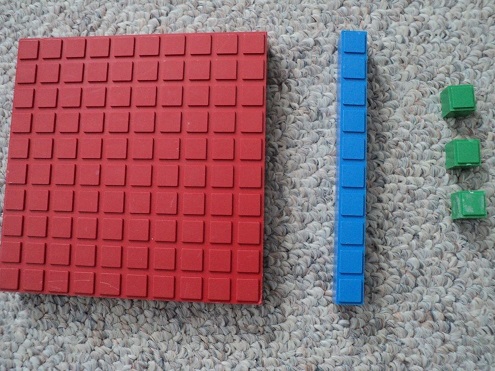
Grades 4-6 (Ages 9-12) T'weens
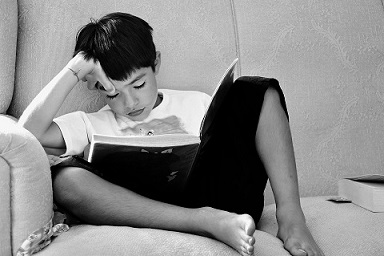
These are the grades that focus on reading-to-learn, where the earlier grades were "learning-to-read". A teacher that must deliver content to 30 children in a classroom relys mainly on worksheets, textbooks and paper-based curriculum, but because you are in a flexible home environment, you can use more hands-on, experiential activities to teach about subject matter topics. For example, to learn about boats and boyency, you can fill the bathtub and have your child test what items are floaters and sinkers. Most of the grade 1-6 curriculum involved topics that most children love to explore without any adult prodding such as rocks and minerals, small crawling animals, color, our community, Peru, etc. Many kids learn most of science through watching The Magic School Bus videos!
Literacy and numeracy is still most important at this age, because most kids will forget content that they don't use on a daily basis by adolescence.
Continue to read to your child but build in space for family reading time during the day so children can enjoy reading on their own.
Continue to use all the activities (games, baking, etc) from the previous section.
Add more conversations at this age. Ask your children their opinions and really listen.
Encourage individual interests and help children look up the answers to their questions if they need your help.
Free tutoring videos and help in math, science and more from Khan Academy organization
Alberta Education Grade 4-12 Recommended Reading List
Free ADLC Alberta Education Full Curriculum Grade 4-6 (scroll down)
Includes the 15 most important concepts per grade and subject from grades 4-9

Learn Alberta Free Grade 4-6 Curriculum Supports - Go to the T4T Tab
Grades 4-6 Summary APS Outcomes
Grade 6 AB ED textbooks Social Studies
Grades 7-9 (Ages 12-14) Young Teens

Children are getting their abstract thinking skills and the curriculum involves more theories, critical thinking and topics that kids can't see and touch such as religion, algebra and what happens to bodies after death.
Use this time to focus on communication skills. Ask questions and debate topics with your children. Press them for evidence of the statements they make. It's a great time for discussions around the dinner table.
Have your children read novels and whatever else they like to read. Don't press writing if they resist. They still have the high school years to learn how to write the 5 paragraph essay.
If you wish to use Alberta Curriculum, you can download these handy core topics and grades modules from Alberta Distance Learning Centre.
Free ADLC Alberta Education Full Curriculum Grade 7-9 (Scroll down)
Includes the 15 most important concepts per grade and subject from grades 4-9

Free tutoring videos and help in math, science and more from Khan Academy organization
Learn Alberta Free Grade 7-9 Curriculum Supports - Go to the T4T Tab
Alberta Education Grade 4-12 Recommended Reading List
Grades 7-9 Summary APS Outcomes
Grades 10-11 (Ages 15-17) Older Teens
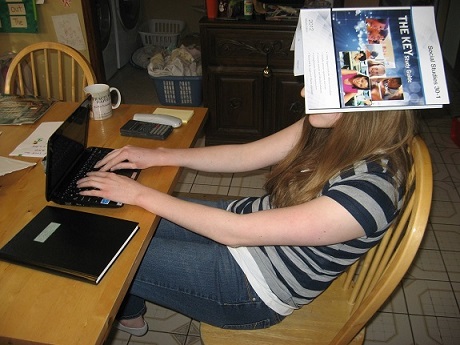

These are foundational grades and subject matter that will build good knowledge and skills for success in Grade 12 - the all-important year, and adult life.
Continue the conversations, debates and discussions with your children on current events.
To ensure they cover all their course material, download the SOLARO course material from the library so they don't miss any content.
You can access free course content through ADLC but must be registered through your homeschool board.
Free tutoring videos and help in math, science and more from Khan Academy organization
Alberta Education Grade 4-12 Recommended Reading List
Grades 10-12 Full APS Outcomes
High School Basic Options Webinar
Home Education Self-Designed High School in Alberta for a Diploma Webinar
Need more detailed help and consultation?
Wondering how to home school your high school aged child? Your child can take on-line courses, classroom courses, or do Parent/self-designed high school, or even a combo of all three and still acquire a diploma. This session is not sponsored by any school authority. Register for the 90 minute webinar recording and find out everything you need to know! Presented by Judy Arnall, Homeschool parent of 4 High school graduates/Scholarship recipients and 3 who have graduated university.
This detailed session is not sponsored by any school board so we can have a frank discussion. It is provided by Professional Parenting.
Fee: $49.95 plus GST, includes 90 minute recording, course proposals and summaries, and live consultation.
Grade 12 (Ages 17-20) Graduates
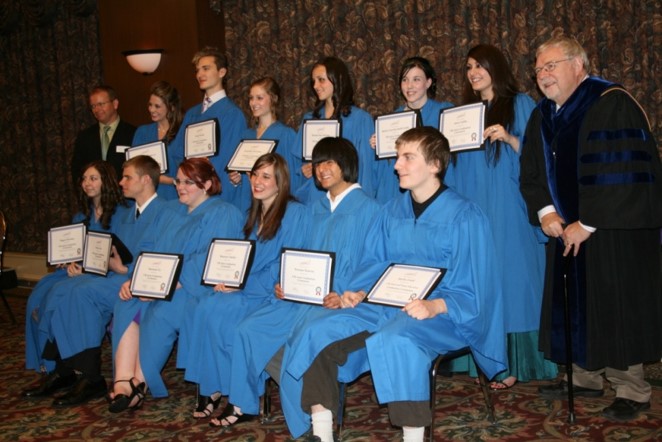
The grade 12 year is the most important year and will sort where your child will go for post-secondary school, work or entrepreneurialship.
Be sure your child knows all the concepts for the grade 12 core courses by accessing The Key from the libraries for each subject and grade, or the SOLARO courses which are The Key in digital form. These important resources cover everything they need to know for success on the diploma exams.
Your student will get an Alberta Education High School Diploma on the Home Education Program as long as they acheive the APS outcomes for the courses and attains 100 credits.
Public Libraries offers free SOLARO (digital) books or THE KEY (print) for each subject and grade
Learn Alberta Free K-12 curriculum - Go to the T4T Tab. Ask for password from your board.
Alberta Education Grade 4-12 Recommended Reading List


How Much Time Should Homeschooling Take?
There is no set time that children have to homeschool each day.
Homeschooling is incredibly personalized and efficient. Home education typically takes about 30 minutes for day for grades 1-6, 1 hour a day for grades 7-9 and 2 hours per day for high school. Think of how much time it takes to plan a dinner party for 30 people, as opposed to cooking a recipe for 2. That is the difference between lesson planning/delivery/assessment for a classroom and homeschooling a few children at home.
On the other hand, if you sign up for Distance Education school programs such as online and paper-based, your child will be spending 5 hours per day at home doing school work because schools have to teach the curriculum via paper or text. Home Education parents have choices to teach the curriculum or not. And they can teach using workbooks or real life experiences.
Parents are excellent at providing structured or unstructured learning environments. Grades 1-6 children learn best through hands-on experiential learning activities. Schools have to teach by workbooks, worksheets and textbooks, because it is the most efficient delivery method to a classroom of 30 children. But you don't. If you are teaching 1-10 kids, you can go to the Science Centre, Zoo, Museums, field trips, park, wetlands, and other interesting places every week and cover off math, English, Science and Social in a very fun, memorable method.
Age 13 and up is a good time perhaps to begin online classes as children have the executive function development in teen-age development to concentrate more on screens and have the patience to sit longer for synchronous teaching and assignments.
I'm Worried about too much Screen-Time
Worried about too much screen time? Relax. Screen time is educational for children above age 7. Besides, parents need to work from home! Many homeschooling parents work part time and even full time (some hire teaching nannys and tutors) and children learn from everything. During COVID, it is recommended to throw the Canadian Pediatric Society screen time recommendations out the window. Sanity first!
Academic Benefits of Video Gaming
University of Calgary Report on Benefits of Video Gaming - Page 41
MacLean's Scott Gilmore Video Game Research
The Giant List of Online Activities
Global TV "Tips for Managing Screen Time" November 2019
I don't have a computer or internet. How can my child learn?
Kids learn even without technology. Many parents can't access computers, IPADs and technology. That is fine too. Many homeschoolers do not use technology and their children learn from library resources and self-directed persuits, including play. The Fraser Report found that there was no SES affect on how well children did while homeschooling, proving that the caregiver-child relationship matters more than the curriculum choices.
My child won't do the work or listen to me. I'm considering Unschooling. What is Self-Directed Unschooling?
The Globe and Mail Article on Unschooling and Self-Directed Education
Unschooling is learner-driven ducation. It is the fastest growing methodology of children learning without power struggles.
Children never stop learning. They are born curious about how the world works. Unschooling is empowering children to learn what sparks their curiosity about everything around them. It is trusting that they will seek out knowledge about anything when they need to know it. It is trusting that children learn quite a lot through their play and projects. Even during COVID, children kept on learning. Maybe not the government's choice of topics, but the children still kept on learning reading, writing and math skills and their unique topics of interest. When children are empowered to learn what they want to learn about, motivation is very high and the learning sticks.
Many children learn grades 1-9 without any textbooks, workbooks or paper-based curriculum at all. They learn through projects, sports, games, internet research, socializing, discussions, play, jobs, volunteering, Worldschooling, and self-directed persuits. At some point, children enter a more formal high school program earning credits by meeting Alberta Programs of Study outcomes and go on to universities, colleges and tech schools. Unschooled children are more prepared for university because they have many years of practice of owning their education and taking an active role in aquiring knowledge and skills. They are not burned out by too many years in formal education environments.
Learning Revolution Conference - Unschooling Defined
Unschooling Canada Association has more information on Self-Directed Unschooling

My partner and family is not on board. Is there research that home education works?
The Fraser Institute has the best research on the efficacy of home education in Canada.
Fraser Report on Homeschooling in Canada 2015
If home education doesn't work out, can I put my child back in school?
You can put your child back into school at any time of the year. They will not be tested. They will go into the grade equivalant to their age. There is no holding children back or failing in Alberta Education.
I need to work. Can I still homeschool?
You can even continue to work part-time or full-time. Many parents are astonished to know how little time home education takes. A child in elementary school can finish in 30 minutes a day, junior high in an hour and high school in two hours per day. Reading and field trips would be extra time.
In addition, as mentioned before, parents do not have to do the teaching. They can outsource it.
Can You Homeschool Other People's Children?
Keep in mind that children under age 10 need adult supervision.
Do I have to follow the Alberta Curriculum?
You can if you want to. But you do not have to. You can choose to follow the 1400 outcomes per grade of the Alberta Programs of Study or you can choose to follow the 22 outcomes by the time your child is age 20, of the Home-Education Schedule Of Learning Outcomes, also called the SOLO
Even if you outsource the teaching to someone else on the home education program, they can easily meet the 22 general SOLO outcomes.
I'm confused by all the curriculum choices. What if I choose the wrong one?
With the internet, everyone has learning at their fingertips. Homeschooling has never been easier. When you sign up with a school board partner, they will assign a certified teacher facilitator to help you select curriculum (or not if you choose to unschool) that matches your child's interest, attention level and abilities. You are not alone! You have a lot of support and You got this!
Tips From Veteran Homeschoolers
Most children under age 13 will not remember what they studied in their grades 1 to 6 years. The real learning that sticks begins in puberty. Young children who attend elementary school and even junior high children will still have their neurons connect with each other (by sending neurotransmitters over the gap between them) when they learn about different topics. However, the same can be accomplished by playing video games too.
Anything that stimulates a child's interest is educational and promotes neuron connection. Anything. That is why there is no difference between "educational" resources and "entertainment" resources. Children learn about whatever they are interested in and one can't stop a child from learning and one can't force a child to learn. Learning is like breathing. We do it without even being aware of it. Children do not need to be taught how to learn. We are never "not" learning!
Perhaps children are not learning the government agenda, but they are learning new things that they may not have had the chance to learn. Many kids reach post-secondary admittenace without knowing what they are passionate about because they never had the unstructured time to explore their passions. This time is a gift for interest-based learning and developing relationships that last a lifetime.
When teens study, chances are they will be using that information more in life and future studies and some of it will remain with them as adult. As well, when children study what they are interested in, they will retain the information because they are more likely to use it frequently.
Try to relax and enjoy this final third-of-the-year holiday from school. Do things that are hard to fit in the typical school year such as teaching chores, learning to cook, sew, using the workshop, learning to drive, and embarking on projects in the house and yard. Try and get out for some outdoor walks. Have fun and enjoy each other.
Some families want a rigid schedule and structure, but other families don't. It's all good and what works in your family that everyone is learning and no one is crying is what works. Every child has a different personality, temperament and learning style. Every parent has a different need for structure, routines, screen time limits and they all exist on the opposite ends of the continum. There is no one right way to do anything.
Keep in mind that veteran homeschoolers do not strive to occupy or "entertain" their children. Kids learn very quickly to "own" their education and learning as they did when toddlers and preschoolers. Parents are facilitators that get them resources for their play. We teach kids to expect entertainment. We can unteach it as well. We can encourage children to explore their curiosities and before you know it, they are guiding their own learning - a great skill for independent learning at post-secondary schools.
Online classes - Alberta Education does not recommend online learning for under grade 5 because of the heavy workload and screen time. You can use many resources from home to teach your children during this time, without spending any money - picture books, comics, graphic novels, novels, board games, movies, puzzles, computer games, youtube, outdoor activities and good old-fashioned play!
More Tip Sheets On How-To-Homeschool in Alberta
Why Would I Consider Home Education?
10 Worries of New Home Educators
8 Parenting and Education Myths Not Backed by Research
Homeschooling Advantages and Disadvantages
Does Your Parenting Style Match Your Homeschooling Style?
How Does an Unschooler change a Light Bulb? A Day in the Life of an Unschooler
Tips for Applying to Colleges, Universities and Tech Schools
Setting Up Your Home for Success
Ten Things to Know About Unschooling
Why you should take your children out of public school, by Brent Kreuger
Ways to Learn Math Without a Workbook
The Back-to-School Schedule When You Unschool
10 Reasons to Get the Degree (or Diploma or Certificate)
Screen Time Mitigates Summer Learning Loss
Self-Directed Education Alliance Article: Unschooling 101
Are All-inclusive Vacations Educational? You bet!

